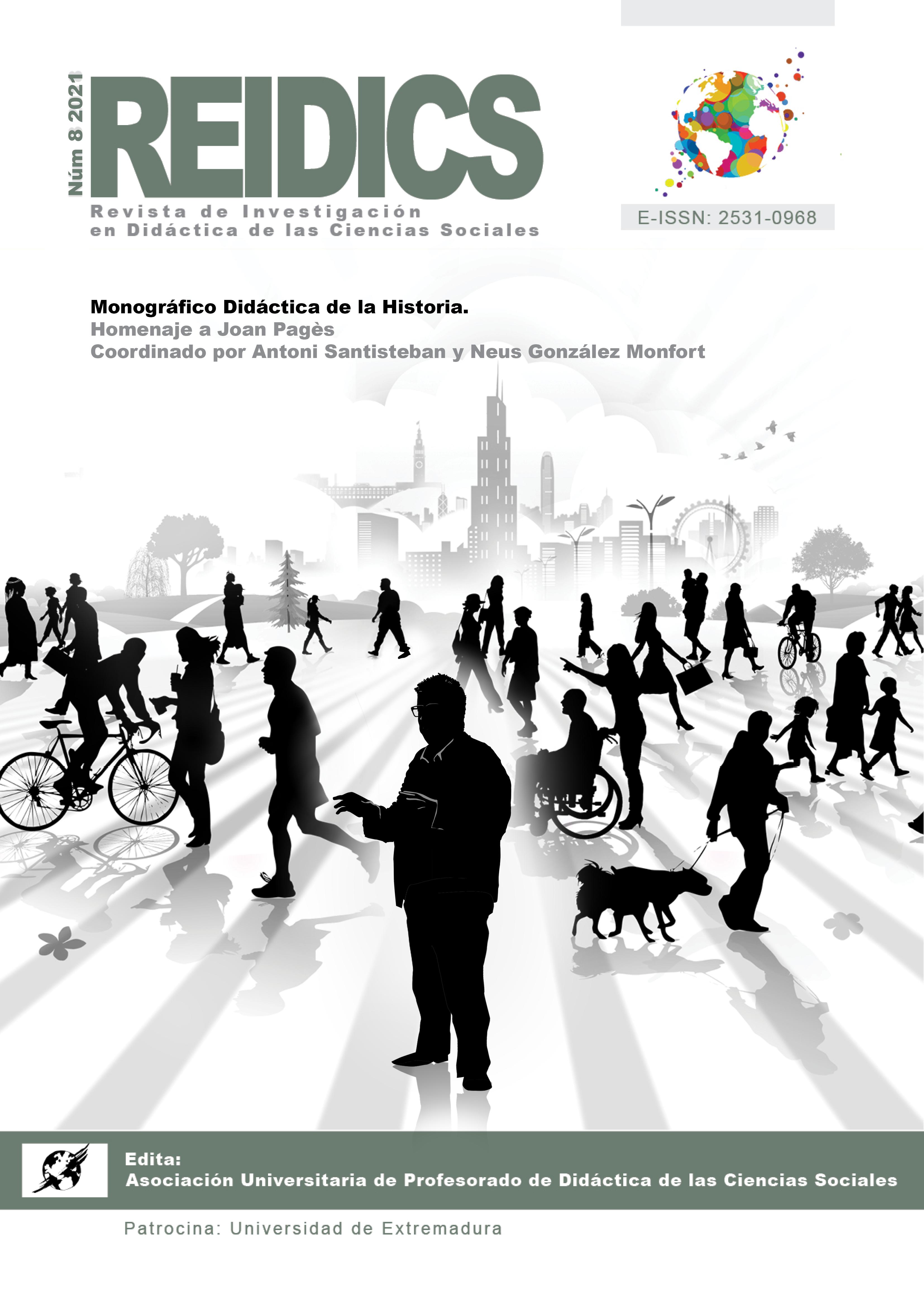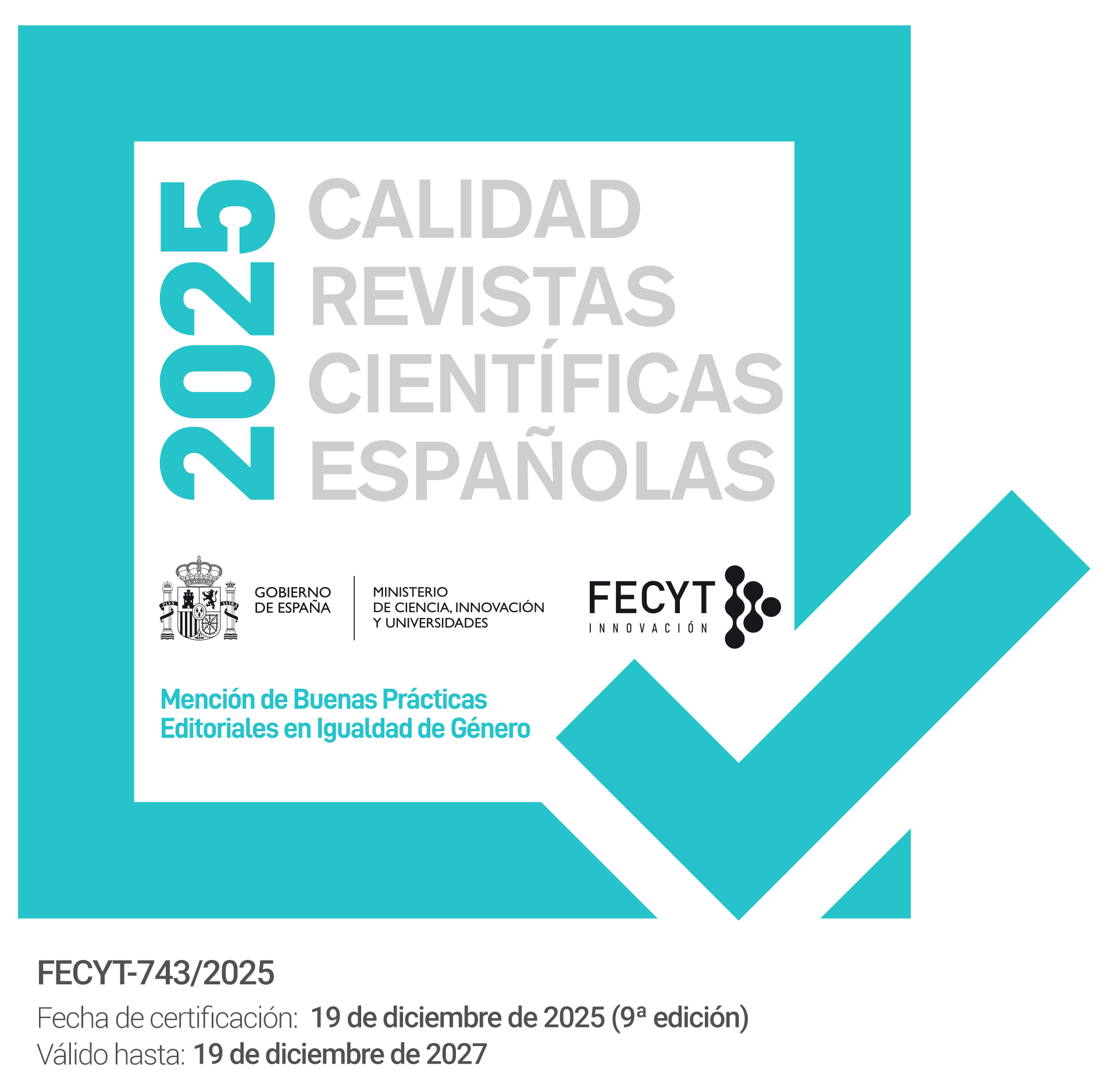Enseñar a pensar el futuro a través de la enseñanza y aprendizaje del tiempo histórico
DOI:
https://doi.org/10.17398/2531-0968.08.38Palabras clave:
tiempo histórico, conciencia histórica, futuro, formación inicial, educación primariaResumen
El estudio que aquí se presenta tiene por objeto indagar en las representaciones que han construido futuros docentes de Educación Primaria, en referencia a la enseñanza y aprendizaje del tiempo histórico. Para ello, se analiza una actividad planteada en la asignatura de Didáctica de las Ciencias Sociales, en la que los y las estudiantes de profesor debían diseñar una propuesta didáctica para enseñar a enseñar el tiempo histórico. Los resultados muestran que se percibe un cambio en las metodologías y estrategias didácticas que aplican. Sin embargo, en la mayoría de propuestas prevalece una enseñanza del tiempo histórico que se relaciona fundamentalmente con la cronología y el estudio del pasado. Con un porcentaje menor se encontraron propuestas que contemplaban la relación entre pasado-presente, y fueron muy pocas las propuestas en las que se incorporaban estrategias para que el alumnado aprendiera a pensar el futuro. Los resultados evidencian lo que ya nos indican las investigaciones revisadas, la enseñanza de la historia permanece anclada en prácticas didácticas con escasa incidencia en el desarrollo de la conciencia histórica para ubicar al alumnado en el mundo en el que vive, adquirir conciencia de responsabilidad frente a los problemas de su presente y pensar con prospectiva de futuro.
Descargas
Publicado
Número
Sección
Licencia
Aquellos autores/as que tengan publicaciones con esta revista, aceptan los términos siguientes:
- Los autores/as conservarán sus derechos de autoría y garantizarán a la revista el derecho de primera publicación de su obra, el cual estará simultáneamente sujeto a la Licencia de reconocimiento de Creative Commons 4.0 BY-NC-SA que permite a terceros compartir la obra siempre que se indique su autor y su primera publicación en esta revista.
- Los autores/as podrán adoptar otros acuerdos de licencia no exclusiva de distribución de la versión de la obra publicada (p. ej.: depositarla en un archivo telemático institucional o publicarla en un volumen monográfico) siempre que se indique la publicación inicial en esta revista.
- Se permite y recomienda a los autores/as difundir su obra a través de Internet (p. ej.: en archivos telemáticos institucionales o en su página web) antes y durante el proceso de envío, lo cual puede producir intercambios interesantes y aumentar las citas de la obra publicada. (Véase El efecto del acceso abierto).
- Los autores y autoras han respetado la política de autoría de esta revista.








